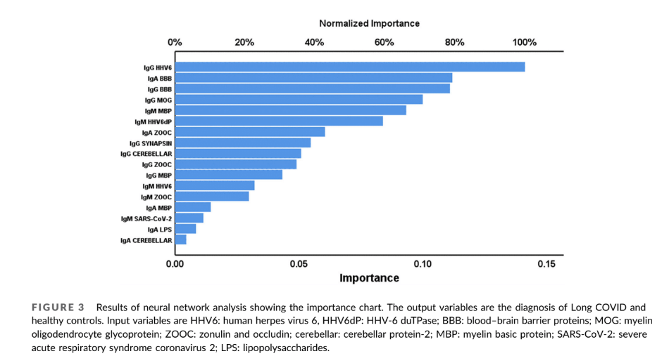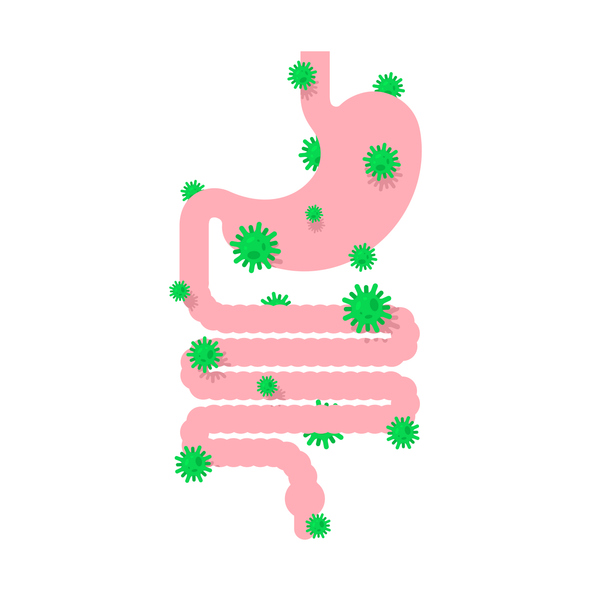Whether HHV-6 has a causal role in leaky gut is not addressed.
Evidence of “leaky gut”—increased permeability of the gut-blood barrier allowing the translocation of gut bacterial antigens like lipopolysaccharide (LPS) and even bacteria into the bloodstream—has been documented in both myalgic encephalomyelitis/chronic fatigue syndrome (ME/CFS) and in Long COVID. A new study adds to the evidence of this in people with Long COVID.
An international team studied 90 people with Long COVID (WHO criteria) and 90 “healthy” control subjects (little detail is provided on symptoms or SARS-CoV-2 testing in these control subjects). The team measured antibody levels against two tight junction proteins—zonulin and occludin (ZOOC)—as well as against LPS and various antigens of both SARS-CoV-2 and HHV-6.
Analysis found that IgA and IgG directed to LPS (IgA-LPS), IgG-ZOOC, and IgA-ZOOC were predictors of Long COVID. These results suggest that a leaky gut is often present in people with Long COVID, and could theoretically be causing the systemic inflammation that contributes to the symptoms of the illness.
The study also found that individuals with evidence of leaky gut more often had evidence of HHV-6 reactivation, the strongest signal being antibodies against HHV-6 duTPase, anti-HHV-6-IgG, IgA ZOOC, IgM ZOOC, IgM-LPS and IgA-SARS-CoV-2, as shown in the figure, below.

The investigators postulate that SARS-CoV-2 infection both reactivates latent herpesviruses and generates autoantibodies against many tissues, include the tight junction proteins that maintain the gut-blood barrier. The assault of these autoantibodies produces a leaky gut, which allows the translocation into the bloodstream of bacterial antigens—leading to a systemic inflammatory state. While the data reported in this study, and several previously published studies, is consistent with this hypothesis, the correlation of these factors in people with Long COVID does not provide evidence of causality—nor clarify whether HHV-6 reactivation is a consequence or cause of either the leaky gut or the symptoms of Long COVID.
Read the full text: Maes 2024

